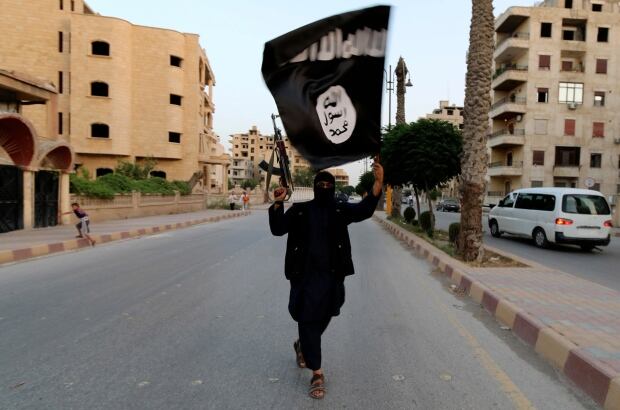Relatives of at least four young Quebecers who have started families with ISIS militants hope their daughters will be able to return to Canada, now that the group appears to have lost major territorial control in Syria and Iraq.
Herman Deparice-Okomba, director of Montreal's Centre for the Prevention of Radicalization Leading to Violence, says he began to receive a higher number of calls from the young women's families at the beginning of October.
"We are talking about four to five families with whom we talk to daily," he said, adding that he has seen photos of the women's children.
These women are married to fighters with the Islamic State in Iraq and Syria, not leaders of the group, Deparice-Okomba said.
In recent months, ISIS has suffered consecutive defeats at the hands of separate but simultaneous offensives in Iraq and Syria by the Russian-backed Syrian forces and allied militias, as well as U.S.-backed Iraqi and Syrian fighters.
Observers have wondered whether those defeats would bring returnees back to their Western countries of origin.
The Canadian Security Intelligence Service (CSIS) estimates that 180 people with ties to Canada have joined a terrorist group abroad, and about half of them are believed to be in Syria or Iraq.
In January, a report from Radio-Canada's investigative program Enquête revealed that some 60 Canadians have returned home from Iraq or Syria.
Each of the cases is unique, but in general, the families of the young women don't hear from them often, Deparice-Okomba said.
The families say their loved ones have been brainwashed and they are trying to disentangle the women from the group, even if it means they will be prosecuted criminally upon their return to Canada.
No clear procedure
The key is to ensure public safety when the women who left return to Canada, Deparice-Okomba said.
"We have to make sure that these people do not pose a threat to us."
There is no clear procedure to deal with what happens when these young women who have married ISIS fighters return, according to Phil Gurski, a former CSIS analyst.

A member loyal to ISIS waves a flag in Raqqa, Syria. CSIS says it believes 180 people with Canadian connections are engaged in terrorist activity abroad. (Reuters)
"Theoretically, it's against the law, we should charge them with a crime," he said.
The big challenge for Canadian authorities is to gather evidence to convict ISIS supporters returning to Canada.
Gurski explained though CSIS has information about them, it is rarely admissible in court, and added there are other questions surrounding these women such as whether their children can obtain Canadian citizenship.

















